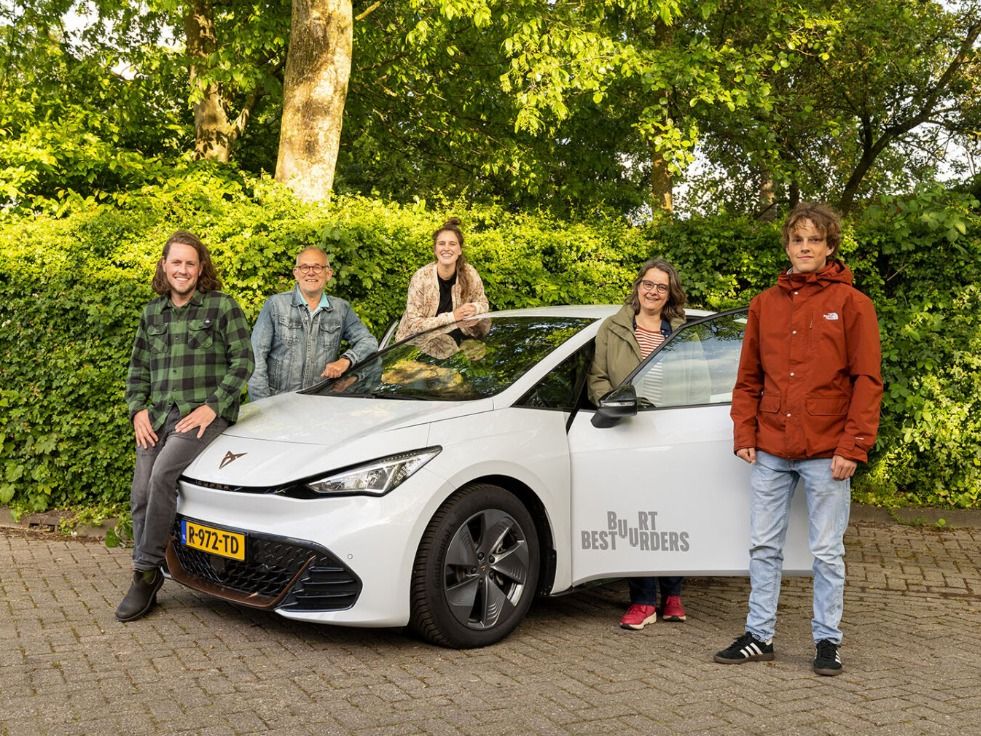
Added: Apr 28, 2025
Last edited: May 22, 2025
Across the Netherlands, privately owned cars spend an average of 95% of their time parked. For second cars, that number rises to 99%. Especially in rural areas, this leads to significant underuse of valuable resources. The initiative Buurtbestuurders offers an alternative: electric cars shared within the local community. This approach is not only more sustainable and cost-effective, but it also helps strengthen local social ties. While shared cars are increasingly common in urban settings, commercial providers often overlook less densely populated areas due to lower profitability. Buurtbestuurders was launched in response to this gap, driven by the belief that car sharing should also be accessible in villages and smaller towns, including those in Friesland.

Photo: Buurtbestuurders
The initiative addresses multiple challenges at once: reducing the number of vehicles on the road, cutting CO₂ emissions, and limiting the need for car production. A single well-used shared car can replace up to nine privately owned vehicles. The model draws on local networks and organizations—such as cooperatives, village associations, and community groups—to help introduce car sharing where commercial players are absent. Buurtbestuurders has set an ambitious goal: to place 500 electric shared cars throughout Friesland. In a province with over 312,000 personal vehicles, this would eliminate the need for an estimated 4,500 second cars, making a significant contribution to more sustainable mobility.
The initiative is a collaboration between Energie VanOns and Friesland Huur, supported by the Province of Fryslân and the Municipality of Leeuwarden. Friesland Huur supplies the vehicles and manages contracts with local initiators. Energie VanOns provides the charging infrastructure for the electric vehicles. The system runs on a platform developed by WeGo, the leading provider of shared mobility solutions in the Netherlands. The concept is simple and accessible. Through an app, residents can book a car whenever they need one. For those driving fewer than 10,000 kilometers annually, the shared model is often more economical than owning a car. Many users assess their current car costs using tools such as the ANWB cost calculator and budget accordingly for shared use. Buurtbestuurders demonstrates how sustainable, affordable, and community-driven mobility is possible—even in places where traditional market-driven models fall short.

